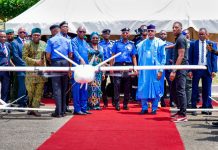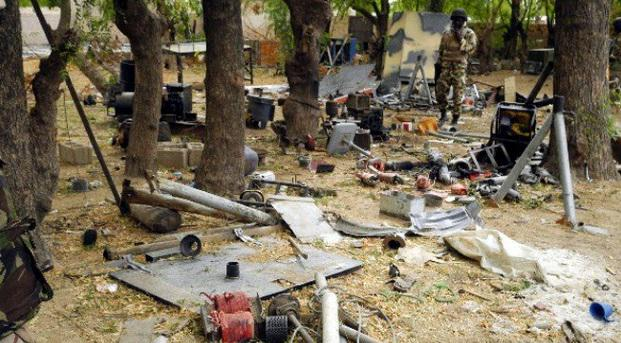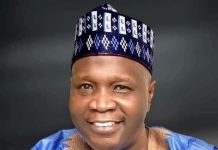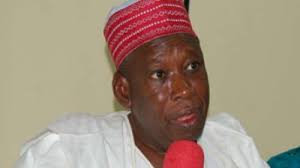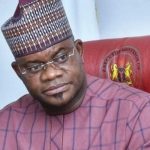By John Mayaki
An article on StearsBusiness defined a primary election as “a mini-election where a political party elects its preferred candidate to run for public office under its platform.” The article, titled Explainer: What are Direct and Indirect Primary Elections, went ahead to explain that “during primaries, parties go through an elimination process where they trim down a pool of nominees to just one person who will represent them at the general polls.”
In Edo State, the gubernatorial election is coming up on September 19, and various political parties are required to provide one candidate, each, who will represent them in the polls. By the virtue of this requirement, and the fact that the date of the election is drawing close, political parties are setting the stage for their primaries. For the All Progressives Congress, the incumbent party in Edo State, there is an even more urgent need to elect the ultimate candidate as soon as possible, and then focus on retaining political leadership in the state.
However, primary elections are, in type and form, divided into two. Direct and Indirect Primary Election. Direct primary election consist of the whole registered members of a party, just like in general elections, participating in selecting the party’s candidate through casting votes. Whereas indirect primary is achieved through party members electing “delegates who in turn elect the party’s candidate on their behalf.”
For Edo APC, there may be a conflict on which method to employ. However, with the existing peculiar circumstance of the COVID-19, a certain method emerges favorable.
The indirect primary system, in the convergence of delegates, will need to congregate about 5,000 people in a closed space, for the purpose of electing a party candidate on behalf of the people and the whole registered members of the party. Contrary to this, the direct primary method will allow proper franchise for all members of the party, in their districts and units, to participate in the process.
The statistical assumption derives from the 2016 primary election when the indirect method was last used before the ultimate adoption of the direct method in the previous convention. The 2016 indirect primary featured over 4000 delegates. But the stated figure excludes independent observers, journalists, and academics interested in the process. When added, the figure rises slightly above 5000, all of them herded in a space that closely knit the bodies of participants.
To repeat such in the face of existing realities is to commit suicide. It is a deliberate tethering of the people at the brinks of explosive danger. And that is why the arguments for indirect primary election employs a logic that is flatly impotent and self-defeating. Those making the argument claim that the indirect primary is better in attempting to avoid the spread of the virus, yet they neglect the fact that the virus breeds and spreads faster in packed and enclosed spaces—the exact method that the indirect primary will operate with.
To complete the gruesome picture, some of these delegates who are to play vital roles in an indirect primary setting are scattered all over the country. To have them move at the moment will not only breach the existing lockdown laws but as well put the state at the risk of importing vectors. Worse, these out-of-state delegates will on the day of the primary election, interact with people already on the ground and relatively secure. In any case of transmission, the virus will go far and wide, seeing persons even in the rural areas—which has until now been safe—put at risk of infection. This will begin a new wave of infection and spread, one growing down to top, from our weakest spots in the state’s health system.
The direct primary method, however, will decongest people and protocol, having the process done in an open place and a dispersed manner where party members can easily observe the social distancing and other preventive measures. When cut down to basic units, we arrive at the best and most workable formula. Currently, there is no unit in Edo State with over 200 registered APC members. And, without any form of doubt, it is easy to regulate 200 individuals, applying globally administered preventive measures, than it is with a figure staggeringly over 5000.
More so, for an aspirant like the incumbent Governor Godwin Obaseki who lay claims to great popularity following self-proclaimed successes in policies that have purportedly transformed the lives of all, including members of the party, a direct primary offers a good opportunity to put the popularity to the test.
In addition to the foregoing, there is a legal perspective to the dilemma. Every political party has a structure upon which it operates. They equally have laws that regulate their actions and operation. In the particular case of the APC, the party, drawing from experiences in the past, has established a system with national effect in matters regarding primary elections.
Article 13. 4(V) of the APC Constitution gives the National Working Committee power to propose regulation to the National Executive Committee of the party for the conduct of the primary and this also includes the mode to be adopted. It was in the exercise of this duty that the NEC adopted the direct mode of primary for in selecting the party’s flagbearer for the Edo State Governorship election. This decision of NWC is binding on the state executives of the party in the conduct of the Edo State APC primary. It will amount to illegality for the state executives, or any other body, to now adopt the indirect mode.
Such illegality breeds conflict. These conflicts lead to the emergence of various candidates acquired from varied primary elections among party factions within a state. And, eventually, matters end in court. The whole back-and-forth damages the party’s reputation, reducing its popularity and acceptance in the larger population of people. At the extreme, the opposition party benefits from the conflict, having the people or the court voting or ruling in their favor. Clearly, this is not what Edo APC wants.
Examples of legal rulings establish the authority of the National Working Committee of the All Progressives Congress in deciding matters of party processes – especially as it relates with the method of electing representatives in elections – abounds.
A precedent can be found in the case involving Hon. Peter Akpatason and Rt. Hon. Kabiru Adjoto last year when Justice Kekere-Ekun while awarding victory to Hon. Akpatason at the Supreme Court ruled categorically and authoritatively that: “Any primary election conducted by the State Executive of a party has been held to be illegal.”
More recently, in the case between the APC and Engineer Suleiman Aluyi Pere earlier this year, Justice of the Supreme Court, Rhodes-Vivour ruled that: “Candidates are expected to obtain expression of interest and nomination forms, present their certificates for verification and appear before a screening committee. This is the stage at which the domestic or internal affairs of the political party are not justiciable. The courts will not dabble into how a member of the party is screened, or why a member was not cleared by the party to contest the primaries. Put in another way, before a member of the party is cleared, the party has the power to disqualify their member, and is answerable to no one including the courts. A dissatisfied member’s remedy is to leave the party and seek his political ambitions somewhere else.”
Justice Rhodes-Vivour’s ruling makes clear the fact that only two choices are available to any member when faced with a decision from the APC NWC on methods of electing election representatives: to either comply with it or exit the APC for another party if dissatisfied with the prescribed method. Nowhere does it say parallel elections can be held and imposed on the party’s national organ.
Furthermore, for a state like Edo where the sitting governor, through multiple shreds of evidence, has shown his determination to foist himself on the people and the party, there are more reasons to be afraid and skeptical of the indirect form of primary election, which his support group, is prescribing for Edo State APC. Citing again the aforementioned article, indirect primaries “has been criticized for being easier to manipulate by party leaders and delegates.” It becomes clear, therefore, why Governor Godwin Obaseki is adamant about employing the indirect primary method.
Ultimately, if those who make the argument for an indirect primary election have their way, especially in the guise of protecting the people from coronavirus, what then would be done in the general gubernatorial polls in the state? Are there also indirect elections – a method of voting that will determine who will be the governor without the people themselves voting? This makes a better argument for direct primaries as it will even help the Independent National Electoral Commission to rehearse and prepare itself adequately for applying the social distancing measures in the bigger gubernatorial election.
Mayaki is the director of communication and media Pastor Osagie Ize-Iyamu Campaign Organization

